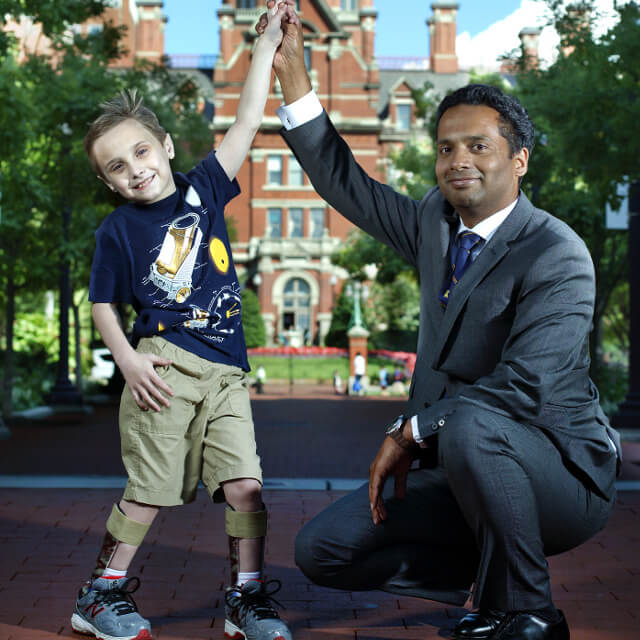Orthopaedic Complications of Cerebral Palsy
Often diagnosed in infants and toddlers, cerebral palsy (CP) is a condition resulting from a brain injury that occurs before, during or shortly after birth. Cerebral palsy affects a child’s muscle tone and control, which can result in involuntary movements or abnormal walking.
Orthopaedic Complications of Cerebral Palsy: What You Need to Know
- Symptoms of cerebral palsy include exaggerated reflexes and floppiness or stiffness in the trunk of the body or limbs.
- While there is no cure for cerebral palsy, treatment options are available for its associated orthopaedic conditions.
- Orthopaedic conditions commonly seen in patients with cerebral palsy include hip dysplasia, neuromuscular scoliosis, equinovarus foot, neuromuscular flatfoot, toe walking, limb length inequality, torsional disorders and muscle contracture.
Orthopaedic Issues Related to Cerebral Palsy | FAQ with Dr. Ranjit Varghese
Ranjit Varghese, M.D., pediatric orthopedic surgeon at Johns Hopkins Orthopaedics, discusses treatment of cerebral palsy. He explains the common challenges that result from cerebral palsy, how surgery can treat some of the orthopaedic conditions and what can be expected after surgery.
Our Specialists
Rely on the expertise of our physicians to help you manage your child's orthopaedic conditions resulting from cerebral palsy.




